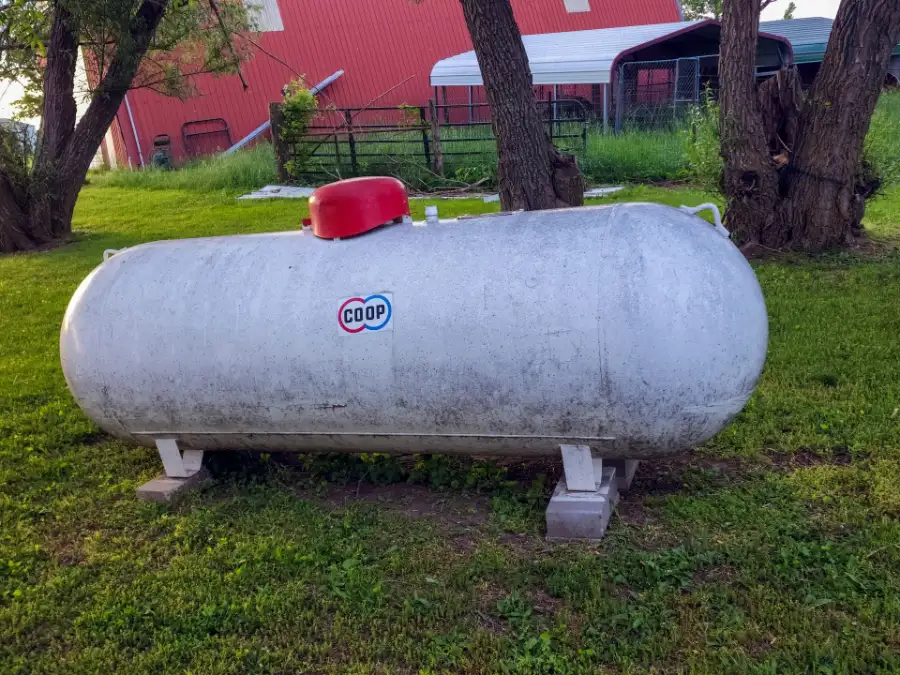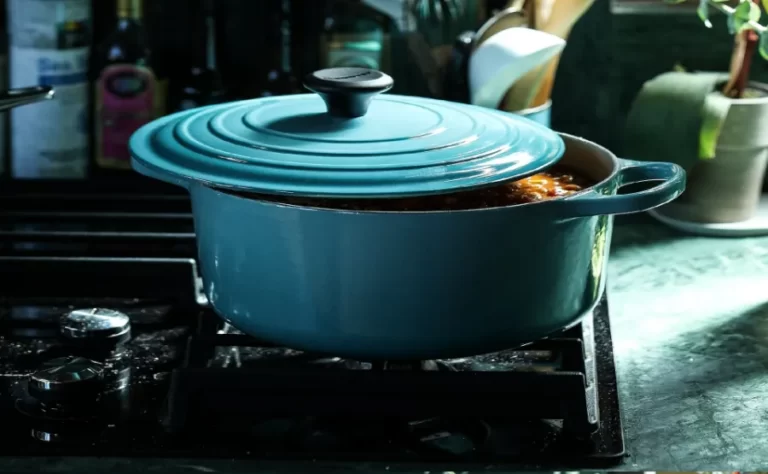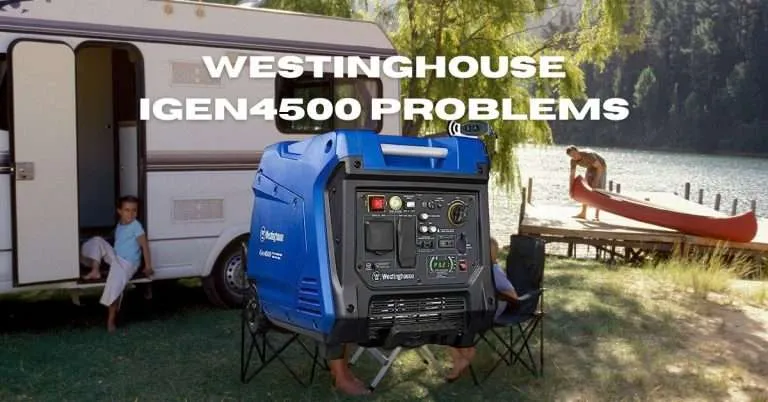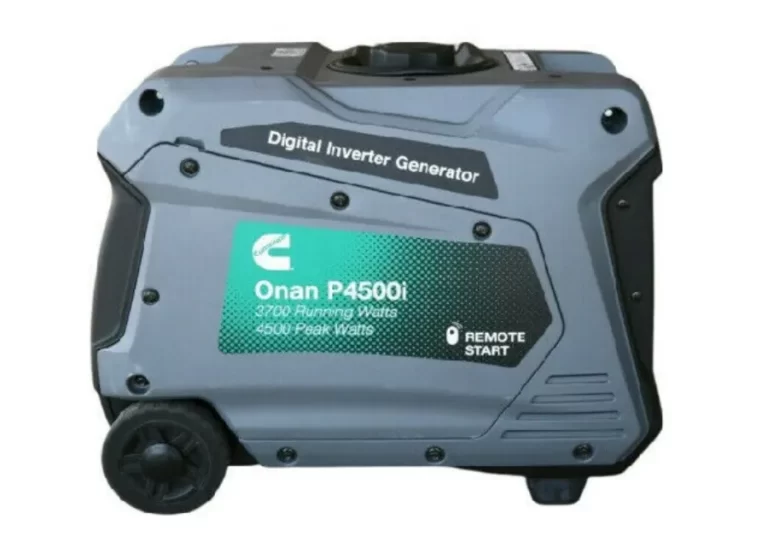Is It Illegal to Have a Propane Tank Indoors? What You Need to Know

Last updated on August 13th, 2024 at 12:05 am
When the barbecue season comes, many homeowners are tempted to store their propane cylinders indoors after use. What many do not know or remember is that doing so is dangerous and was pronounced illegal.
Yes, it is dangerous and illegal to have a propane tank indoors. Many states have passed the law against the indoor storage of propane tanks. Homeowners are required by law to store them outdoors, far from any electrical switches and ignition sources like cooking or heating appliances. Therefore, having propane tanks indoors is a violation of the Liquefied Petroleum Gas regulations.
This article explores the proper use and storage of propane cylinders as well as the potential dangers that are brought about by improper use.
What are the dangers of propane tanks?

Propane gas is known to be highly combustible when it comes into contact with a good amount of air. It has a higher density than air, hence leaked propane tends to settle on the lower areas of a building or house such as the basement.
Typical barbecue propane tanks contain enough propane gas to fill an entire basement floor. When this gas comes into contact with a source of ignition, the damage would be massive leaving the building completely destroyed and its occupants seriously injured or worse.
To that end, the Liquefied Petroleum Gas Regulations stipulated that all propane tanks should be safely stored outside, far from ignition points, for everyone’s safety. The tanks should also be stored about three feet from any building opening. Moreover, they should be in an upright position during storage, transportation, and use.
You are then free to store your barbecues indoors, only after securing the propane tank outside.
What is the proper use of propane cylinders?
Propane cylinders come in handy on many occasions. They are very convenient thanks to their portable nature and provide fuel for different applications. However, many people are misguided because of the same.
Since they are portable and can be refilled easily, some propane cylinders are used for applications that are not intended for or without proper precaution.
As harmless as it may seem, the improper use of these cylinders poses serious danger not only to the home or property but also to the users. Proper cylinder use entails the application of the propane cylinder and the location at which it is being used.
Proper applications of propane cylinder
Firstly, the cylinders should be regularly serviced. This includes the equipment and appliances that utilize propane cylinders. They should not be used as replacements for empty tanks due to regulators and fixed piping systems reasons.
Another thing is, that the cylinders used in vapor services like fish fryers and barbecue grills should not be replaced with a forklift propane cylinders. This is because the LP forklift cylinders utilize liquid propane that is specific for their engine applications. More on usage and safety is usually as outlined on the cylinder’s warning label.
The proper location for cylinder use
When using propane cylinders, ‘outdoors’ should be on your mind. The only right location to use a propane cylinder is outside regardless of the size and use. As earlier mentioned, using propane tanks is dangerous and illegal. Your safety should be of utmost priority.
During outdoor use of propane cylinders, remember to keep them far from any heat source. Moreover, the location of use should be well-ventilated.
Another approved location for propane tank use is unenclosed, covered patios. However, extra precautions should be taken such as keeping it far from combustible and flammable materials as well as far from building openings.
Where to store propane tanks at home
The best storage option for propane tanks is a detached shed or a garage. Such structures not only provide coverage from sunlight but also keep the area well-ventilated in both warm and cold conditions.
Also, keep the tanks elevated to prevent them from sitting in standing water for long and resulting in rust.
Even when outdoors, the tanks should be stored approximately 10 feet from any sources of ignition and flammable materials. If in the garage, the garage should be well-ventilated, and the tank should not be stored near power tools.
The tanks should be left uncovered as long as they are protected from direct sunlight. They should be in an upright position at all times.
During storage, the temperatures should be maintained under 120 degrees Fahrenheit, and above -40 degrees Fahrenheit. Very low temperatures may reduce the pressure in the tank, and when the valve is finally opened, it will not perform optimally.
Is it safe to hook up a propane heater outside?
Some propane patio heaters can be used safely outside hence you can hook them up outside. These are safe for porches, gardens, decks, and terraces. Therefore, when in the market for one, choose a heater that meets your needs.
During the cold weather, many homeowners opt for propane heaters to use in their outdoor spaces. They conveniently warm up the outdoors through the cold seasons. However, some precautions should be taken with the use of these heaters.
For one, the heaters should be placed out of foot traffic and also away from flammable items. They should also be on stable surfaces, and properly secured to prevent the likelihood of them tipping over.
If you want to move the heater, it would be best to turn it off first and then move it to the desired location.
Propane heaters should never be brought indoors. Their use is limited outdoors and should not be operated if you smell any gas. Propane has a characteristic skunk or rotten eggs odor that you can detect.
Conclusion
The proper use of propane cylinders is vital. Failure to do this is not only a violation of the law but could also result in loss of life and property. Hopefully, this article sheds some light on the proper use of propane tanks in location and applications.
You Can Also Read:
- How Low Can You Discharge A Deep Cycle Battery
- How To Use A Marine Battery For Camping
- Where to Store Small Coleman Propane Tanks at Home
- Best 12V Portable Camping Fridge - August 13, 2024
- How to Insulate Slides on an RV - February 8, 2024
- How Much Water Does an RV Use Per Day? Understanding Your Daily Consumption - February 8, 2024






